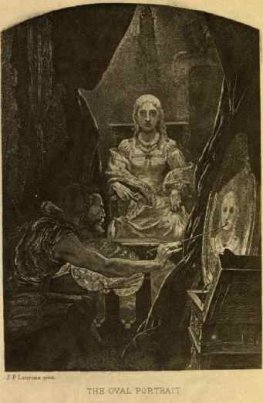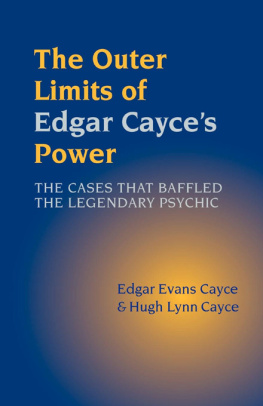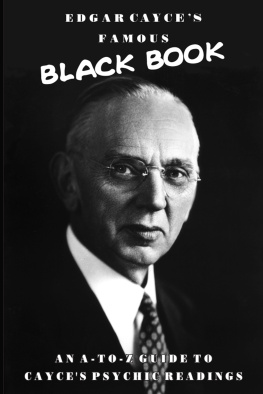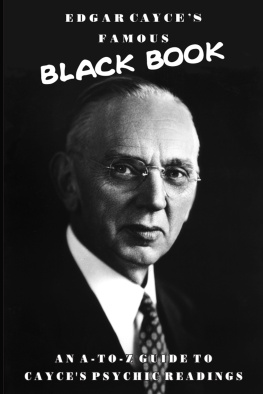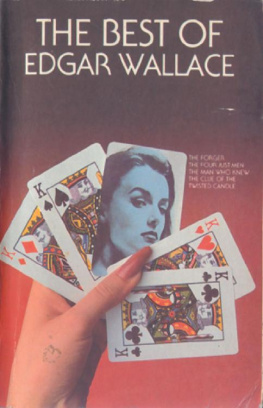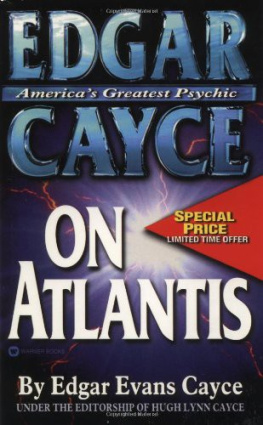Edgar Poe - The Assignation
Here you can read online Edgar Poe - The Assignation full text of the book (entire story) in english for free. Download pdf and epub, get meaning, cover and reviews about this ebook. genre: Prose. Description of the work, (preface) as well as reviews are available. Best literature library LitArk.com created for fans of good reading and offers a wide selection of genres:
Romance novel
Science fiction
Adventure
Detective
Science
History
Home and family
Prose
Art
Politics
Computer
Non-fiction
Religion
Business
Children
Humor
Choose a favorite category and find really read worthwhile books. Enjoy immersion in the world of imagination, feel the emotions of the characters or learn something new for yourself, make an fascinating discovery.

The Assignation: summary, description and annotation
We offer to read an annotation, description, summary or preface (depends on what the author of the book "The Assignation" wrote himself). If you haven't found the necessary information about the book — write in the comments, we will try to find it.
The Assignation — read online for free the complete book (whole text) full work
Below is the text of the book, divided by pages. System saving the place of the last page read, allows you to conveniently read the book "The Assignation" online for free, without having to search again every time where you left off. Put a bookmark, and you can go to the page where you finished reading at any time.
Font size:
Interval:
Bookmark:
The Assignation
by Edgar Allan Poe
Stay for me there! I will not fail
To meet thee in that hollow vale.
Exequy on the death of his wife, by Henry King, Bishop of Chichester.ILL-FATED and mysterious man!bewildered in the brilliancy of thine own and fallen in the flames of thine own youth! Again in fancy I behold thee! Once more thy form hath risen before me!notoh not as thou artin the cold valley and shadowbut as thou shouldst besquandering away a life of magnificent meditation in that city of dim visions, thine own Venicewhich is a star-beloved Elysium of the sea, and the wide windows of whose Palladian palaces look down with a deep and bitter meaning upon the secrets of her silent waters. Yes! I repeat itas thou shouldst be. There are surely other worlds than thisother thoughts than the thoughts of the multitudeother speculations than the speculations of the sophist. Who then shall call thy conduct into question? who blame thee for thy visionary hours, or denounce those occupations as a wasting away of life, which were but the overflowings of thine everlasting energies?
It was at Venice , beneath the covered archway there called the Ponte di Sospiri, that I met for the third or fourth time the person of whom I speak. It is with a confused recollection that I bring to mind the circumstances of that meeting. Yet I rememberaah! how should I forget?the deep midnight, the Bridge of Sighs, the beauty of woman, and the Genius of Romance that stalked up and down the narrow canal.
It was a night of unusual gloom. The great clock of the Piazza had sounded the fifth hour of the Italian evening. The square of the Campanile lay silent and deserted, and the lights in the old Ducal Palace were dying fast away. I was returning home from the Piazetta, by way of the Grand Canal . But as my gondola arrived opposite the mouth of the canal San Marco, a female voice from its recesses broke suddenly upon the night, in one hysterical, and long continued shriek. Startled at the sound, I sprang upon my feet: while the gondolier, letting slip his single oar, lost it in the pitchy darkness beyond a chance of recovery, and we were consequently left to the guidance of the current which here sets from the greater into the smaller channel. Like some huge and sable-feathered condor, we were slowly drifting down towards the Bridge of Sighs, when a thousand flambeaux flashing from the windows, and down the staircases of the Ducal Palace, turned all at once that deep gloom into a livid and preternatural day.
A child, slipping from the arms of its own mother, had fallen from an upper window of the lofty structure into the deep and dim canal. The quiet waters had closed placidly over their victim; and, although my own gondola was the only one in sight, many a stout swimmer, already in the stream, was seeking in vain upon the surface, the treasure which was to be found, alas! only within the abyss. Upon the broad black marble flagstones at the entrance of the palace, and a few steps above the water, stood a figure which none who then saw can have ever since forgotten. It was the Marchesa Aphroditethe adoration of all Venicethe gayest of the gaythe most lovely where all were beautifulbut still the young wife of the old and intriguing Mentoni, and the mother of that fair child, her first and only one, who now deep beneath the murky water, was thinking in bitterness of heart upon her sweet caresses, and exhausting its little life in struggles to call upon her name.
She stood alone. Her small, bare, and silvery feet gleamed in the black mirror of marble beneath her. Her hair, not as yet more than half loosened for the night from its ball-room array, clustered, amid a shower of diamonds, round and round her classical head, in curls like those of the young hyacinth. A snowy-white and gauze-like drapery seemed to be nearly the sole covering to her delicate form; but the mid-summer and midnight air was hot, sullen, and still, and no motion in the statue-like form itself, stirred even the folds of that raiment of very vapor which hung around it as the heavy marble hangs around the Niobe. Yetstrange to say!her large lustrous eyes were not turned downwards upon that grave wherein her brightest hope lay buriedbut riveted in a widely different direction! The prison of the Old Republic is, I think, the stateliest building in all Venice but how could that lady gaze so fixedly upon it, when beneath her lay stifling her only child? Yon dark, gloomy niche, too, yawns right opposite her chamber windowwhat, then, could there be in its shadowsin its architecturein its ivy-wreathed and solemn cornicesthat the Marchesa di Mentoni had not wondered at a thousand times before? Nonsense!Who does not remember that, at such a time as this, the eye, like a shattered mirror, multiplies the images of its sorrow, and sees in innumerable far-off places, the wo which is close at hand?
Many steps above the Marchesa, and within the arch of the water-gate, stood, in full dress, the Satyr-like figure of Mentoni himself. He was occasionally occupied in thrumming a guitar, and seemed ennuye to the very death, as at intervals he gave directions for the recovery of his child. Stupefied and aghast, I had myself no power to move from the upright position I had assumed upon first hearing the shriek, and must have presented to the eyes of the agitated group a spectral and ominous appearance, as with pale countenance and rigid limbs, I floated down among them in that funereal gondola.
All efforts proved in vain. Many of the most energetic in the search were relaxing their exertions, and yielding to a gloomy sorrow. There seemed but little hope for the child; (how much less than for the mother!) but now, from the interior of that dark niche which has been already mentioned as forming a part of the Old Republican prison, and as fronting the lattice of the Marchesa, a figure muffled in a cloak, stepped out within reach of the light, and, pausing a moment upon the verge of the giddy descent, plunged headlong into the canal. As, in an instant afterwards, he stood with the still living and breathing child within his grasp, upon the marble flagstones by the side of the Marchesa, his cloak, heavy with the drenching water, became unfastened, and, falling in folds about his feet, discovered to the wonder-stricken spectators the graceful person of a very young man, with the sound of whose name the greater part of Europe was then ringing.
No word spoke the deliverer. But the Marchesa! She will now receive her childshe will press it to her heartshe will cling to its little form, and smother it with her caresses. Alas! another's arms have taken it from the strangeranother's arms have taken it away, and borne it afar off, unnoticed, into the palace! And the Marchesa! Her lipher beautiful lip trembles: tears are gathering in her eyesthose eyes which, like Pliny's acanthus, are "soft and almost liquid." Yes! tears are gathering in those eyes-and see! the entire woman thrills throughout the soul, and the statue has started into life! The pallor of the marble countenance, the swelling of the marble bosom, the very purity of the marble feet, we behold suddenly flushed over with a tide of ungovernable crimson; and a slight shudder quivers about her delicate frame, as a gentle air at Napoli about the rich silver lilies in the grass.
Why should that lady blush! To this demand there is no answerexcept that, having left, in the eager haste and terror of a mother's heart, the privacy of her own boudoir, she has neglected to enthrall her tiny feet in their slippers, and utterly forgotten to throw over her Venetian shoulders that drapery which is their due. What other possible reason could there have been for her so blushing?for the glance of those wild appealing eyes? for the unusual tumult of that throbbing bosom?for the convulsive pressure of that trembling hand?that hand which fell, as Mentoni turned into the palace, accidentally, upon the hand of the stranger. What reason could there have been for the lowthe singularly low tone of those unmeaning words which the lady uttered hurriedly in bidding him adieu?
Font size:
Interval:
Bookmark:
Similar books «The Assignation»
Look at similar books to The Assignation. We have selected literature similar in name and meaning in the hope of providing readers with more options to find new, interesting, not yet read works.
Discussion, reviews of the book The Assignation and just readers' own opinions. Leave your comments, write what you think about the work, its meaning or the main characters. Specify what exactly you liked and what you didn't like, and why you think so.



